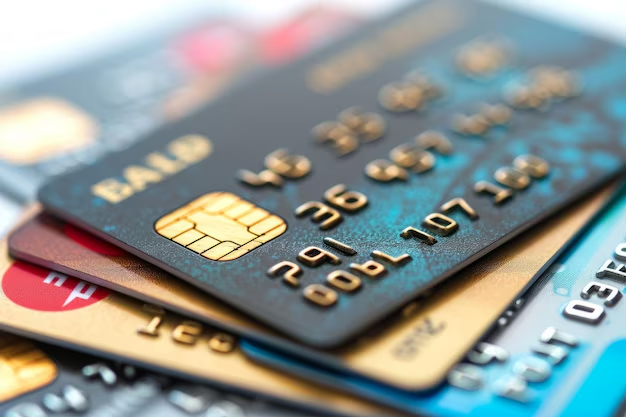A Complete Guide to Secured vs. Unsecured Credit Cards: What You Need to Know
Navigating the world of credit cards can feel overwhelming, even more so when you're trying to decipher the differences between secured and unsecured cards. Whether you're building credit from scratch or looking to expand your financial toolkit, understanding these two types of credit cards is crucial for making informed decisions. This guide will walk you through everything you need to know about secured and unsecured credit cards, empowering you with the knowledge to choose what's best for your financial needs.
🔍 What Are Secured Credit Cards?
Secured credit cards are designed to help individuals build or rebuild their credit history. Here's how they work:
How Do Secured Credit Cards Function?
- Security Deposit: To obtain a secured card, you must provide a cash deposit. This acts as collateral for the credit you borrow. For example, if you deposit $500, your credit limit will likely be the same amount.
- Limitations: The credit limit is typically equal to or less than your deposit, reducing risk for the card issuer.
- Credit Building: Payments, usage, and balance activity are reported to credit bureaus, helping to establish or repair credit history.
Who Should Consider a Secured Credit Card?
- Credit Builders: Perfect for those with little to no credit history or individuals working to rebuild poor credit scores.
- Safety Net: Offers a secured method to use credit, lowering the risk of overspending.
⚖️ Understanding Unsecured Credit Cards
Unsecured credit cards are the most common type in the credit market, requiring no collateral. They can offer various benefits but often require a good credit score to qualify.
Features of Unsecured Credit Cards
- No Deposit Required: Unlike secured cards, these do not require a security deposit.
- Credit Limits Based on Creditworthiness: Limits are determined by your credit score and financial history.
- Rewards and Perks: Often come with benefits such as reward points, cash back, or travel perks, depending on the card issuer.
Who Benefits from Unsecured Credit Cards?
- Established Credit Users: Ideal for those with an established credit history and a fair to excellent credit score.
- Reward Seekers: Individuals looking to maximize their spending through card rewards and benefits.
🏆 Key Differences at a Glance
To clarify further, here's a highlight of the contrasts between these two types of credit cards:
| Feature | Secured Credit Card | Unsecured Credit Card |
|---|---|---|
| Deposit Required | Yes | No |
| Credit Limit | Typically matches deposit | Based on creditworthiness |
| Credit Building | Yes | Yes |
| Eligibility | Easier for low/no credit scores | Requires fair to excellent scores |
| Rewards and Benefits | Basic or limited | Often extensive |
🔑 Choosing Between Secured and Unsecured Cards
When deciding which type of card is best for you, consider these practical consumer tips:
Assess Your Credit Goals
- Building/Rebuilding Credit: If you're starting out or mending past credit mistakes, a secured credit card is often the best route.
- Utilizing Rewards: If you have a solid credit history, an unsecured card with benefits might suit your lifestyle and financial objectives.
Consider Financial Stability
- Budget Constraints: A secured card requires upfront cash, which can tie up savings. Ensure this aligns with your current financial standing.
- Risk Management: If unsure about credit use, secured cards offer a low-risk entry with controlled limits.
Long-Term Plans
- Convertibility: Some secured cards can transition to unsecured cards once you've demonstrated responsible use—offering a pathway as your credit situation improves.
📝 Practical Consumer Tips
To make the most informed decision, use the following checklist during your card selection process:
- 🧩 Check Your Credit Score: Knowing your starting point can guide which type of card to pursue.
- 📆 Plan for the Future: Consider how the card will fit your financial goals long-term.
- 💰 Evaluate Fees: Both types of cards can carry fees; select cards with the lowest fees that meet your needs.
- 🔍 Research Issuers: Different issuers offer varied terms, benefits, and customer service levels.
💭 Final Insights
Navigating the credit card landscape requires careful consideration of your financial goals, credit history, and lifestyle needs. Secured credit cards offer a gateway to credit building, especially beneficial for those who are starting fresh or working on credit repair. On the other hand, unsecured credit cards provide the potential for rewards and benefits, ideal for responsible credit users who have established their creditworthiness.
Ultimately, the right choice lies in aligning a card’s features with your personal circumstances and objectives. By understanding these fundamental differences and evaluating what each type of credit card offers, you're equipped to make an empowered decision that assists your financial journey.

Related Topics
- A Beginners Guide To Investing In Gold And Other Precious Metals On a Budget
- A Comprehensive Guide To Bridge Loans: How They Can Be Helpful For Lower Income Americans
- A Comprehensive Guide: Growth Stocks Versus Value Stocks
- A Comprehensive Guide: The Impact Of Bankruptcy On Homeownership And Mortgage Options
- A Guide For Lower-Income Americans: Making Your Savings Last A Lifetime
- A Guide: Understanding Different Types Of Bank Accounts
- A Guided Journey: Applying For a Mortgage Through Your Bank
- A Helping Hand: Government Assistance Programs For First-Time Home Buyers
- A Practical Guide: Understanding And Reducing Your Property Tax Assessment
- A Simple Guide To Rent-to-Own Home Contracts For Lower-Income Americans
